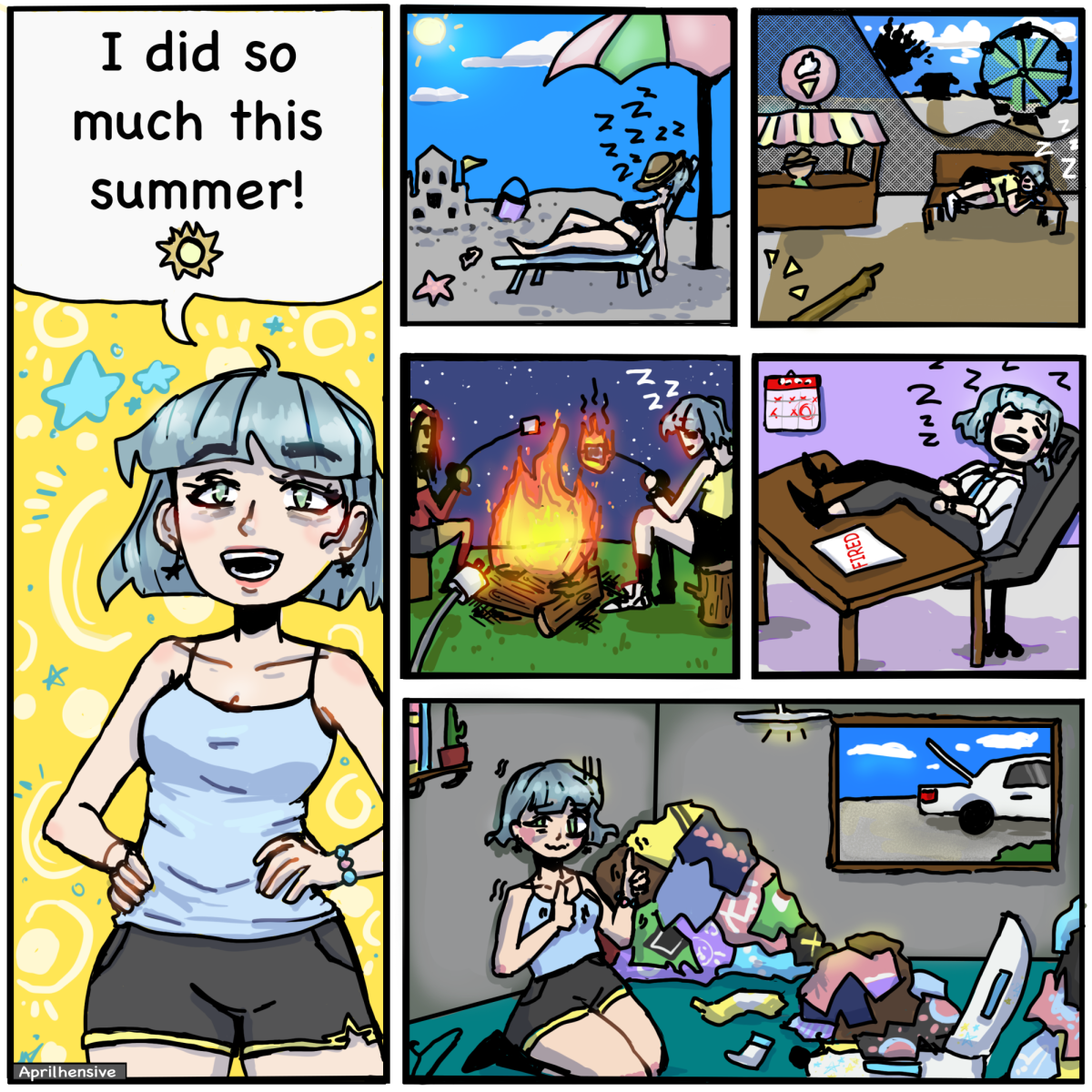Many students have recently returned from gallivanting on their European adventures, also known as studying abroad. They have made the quick transition back to American society, filled with all the comforts of home.
I traveled to London and spent five months enthralled by British accents and immersed in umbrellas, but upon arriving to the rainiest city in the world, I did not get the surge of culture shock many had spoken about when they began their study abroad experiences. And that’s because in most manners, British society is similar to American culture. Sure, they call chips “crisps” and french fries “chips,” but much of their culture reminded me of home, so I felt fairly comfortable in my new environment and was able to adjust well.
My culture shock did not set in until I returned to the U.S. and was driving down my street in a western suburb of Chicago. Familiar brick homes with expansive front porches welcomed me, large oak trees lined the street on either side creating a leafy arch above, and rabbits playfully frolicked in the almost-artificial green grass of my neighbors’ front lawns. I noticed I was caught off guard when a couple casually biked down the street and gave us a friendly wave as they passed. I was instantly reminded of the crowded tube in London, packed with stiff bodies inches from each other, all remaining silent as they whizzed from one location to the next. Being social is simply not a priority for the British. They want to get from point A to point B in as little time as possible with as little interaction with people as possible. And I had amended my friendly demeanor to match the harsh personalities I was faced with in London, so when I returned home I struggled to revert back to addressing my neighbors.
As I looked down my street at this eerily familiar scene that now seemed like a distant memory, I felt like I was looking through a new lens, and everything I saw was something out of a movie. It was in this moment, exhausted from traveling and filled with unsatisfying airplane food, that I realized I had grown up in Mayberry, the fictional town in “The Andy Griffith Show.”
Now, maybe you’re not familiar with Mayberry. It’s not exactly from our generation, but the premise follows two cops as they patrol a town that is so perfectly boring in its utter simplicity that they basically have nothing to do.
Get The Daily Illini in your inbox!
Though it may seem that characterizing my town as Mayberry is a bad thing, it’s not. In fact, it’s a compliment. It’s a testament to the safety of my neighborhood, but also to its exclusivity. The thing about characterizing my little suburb this way is I finally realized the existence of the bubble I had lived in, with picket fences marking the boundaries of my childhood, and was now able to move beyond it. I finally had the confidence to feel comfortable with letting Mayberry go and exploring the possibility of bigger and better things.
It wasn’t until I returned to my suburb, after I left the country to experience other cultures and different ways of life, that I understood how unintentionally sheltered my life had been. I had never known much beyond the lined houses, with white trim and perennial flowers, that held the husbands who mowed the lawns and the wives who cooked dinner. But after realizing the impact of living in a foreign country for an extended period of time, I am now able to transcend Mayberry and look at it in a different light. A light that now shows that this is not the only way to live.
Though I can appreciate my small suburb and be eternally grateful for the opportunities I continue to reap as a result from living there, I am now more aware of its flaws that seem invisible to its residents.
After studying abroad, I am now armed with the knowledge of what lies beyond the fences, better able to understand how those on the other side of the world live. And that’s what studying abroad is supposed to be about, right? Understanding others and placing yourself in their shoes.
People ask all the time, “How was studying abroad?” Of course, you can’t sum it up in one sentence, and everyone expects the conventional answer of, “It was great! I loved it!”
What I really feel like saying is: “Yes, the sights were amazing. Yes, I met wonderful people. But what I took away most from my study abroad experience was the third eye I gained when I returned home. I am still reveling in the beauty of my reverse culture shock and how it has allowed me to look critically at our society. I not only gained a deeper understanding of myself, but I also questioned why we do the things we do.”
Why do we need the picket fences? I now know the answer cannot be because that’s just how we’ve always done it.
Because now I wonder, does the fence keep something out, or does it keep us in?
Kate is a senior in LAS. She can be reached at [email protected].








